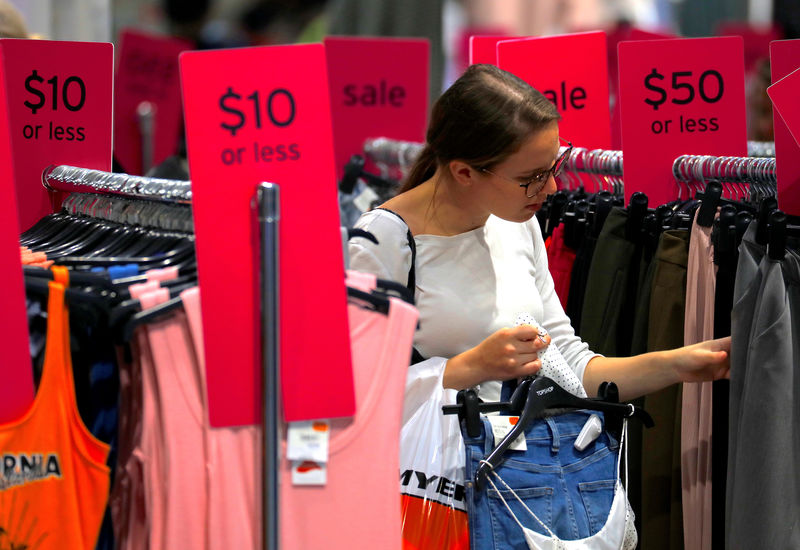By Wayne Cole
SYDNEY (Reuters) - Analysts have again trimmed their forecasts for Australia's economic growth as consumers struggle with high debt and sluggish wages at home, while a slowdown globally weighs on business investment plans, a Reuters poll found.
Economists polled by Reuters forecast Australia's A$1.9 trillion ($1.29 trillion) of annual gross domestic product would expand 1.9% in 2019, down from predictions of 2.1% in the previous poll and 2.7% early in the year.
Growth was seen picking up modestly to 2.5% in 2020 and 2021, still short of the 2.75% that is considered trend.
A run of poor quarters has already seen annual growth slow to its lowest in a decade at just 1.4%, led by weakness in consumer spending and home building.
The Reserve Bank of Australia (RBA) has reacted by chopping interest rates 75 basis points to an historic low of 0.75%, and markets are priced for a further move to 0.5%.
Early signs suggest this has reignited demand for housing and driven home prices higher after two years of decline, but it has yet to revive business or consumer sentiment.
"There is a risk that the rate cuts have had a negative impact on the household perception of the economy, and could actually be doing more harm than good," warned Gareth Aird, a senior economist at CBA.
"There are of course other factors weighing on consumer confidence including U.S.‑China trade tensions, elevated share market volatility, tighter fiscal policy and more generally a soft tone to the local economic data."
The conservative government of Prime Minister Scott Morrison has resisted calls for more fiscal stimulus, preferring to stick to a political pledge to deliver budget surpluses instead.
State spending on infrastructure is one bright spot, as is strength in resource exports which has at least helped the country dodge an outright recession.
Thankfully there is plenty of scope for stimulus given core inflation is down around 1.6%, having run below the RBA's 2-3% target band for more than two years now.

Even after the recent rates cuts, the poll showed analysts expected headline inflation to stay at 1.6% for all of this year, before rising slowly to 2.0% in both 2020 and 2021.